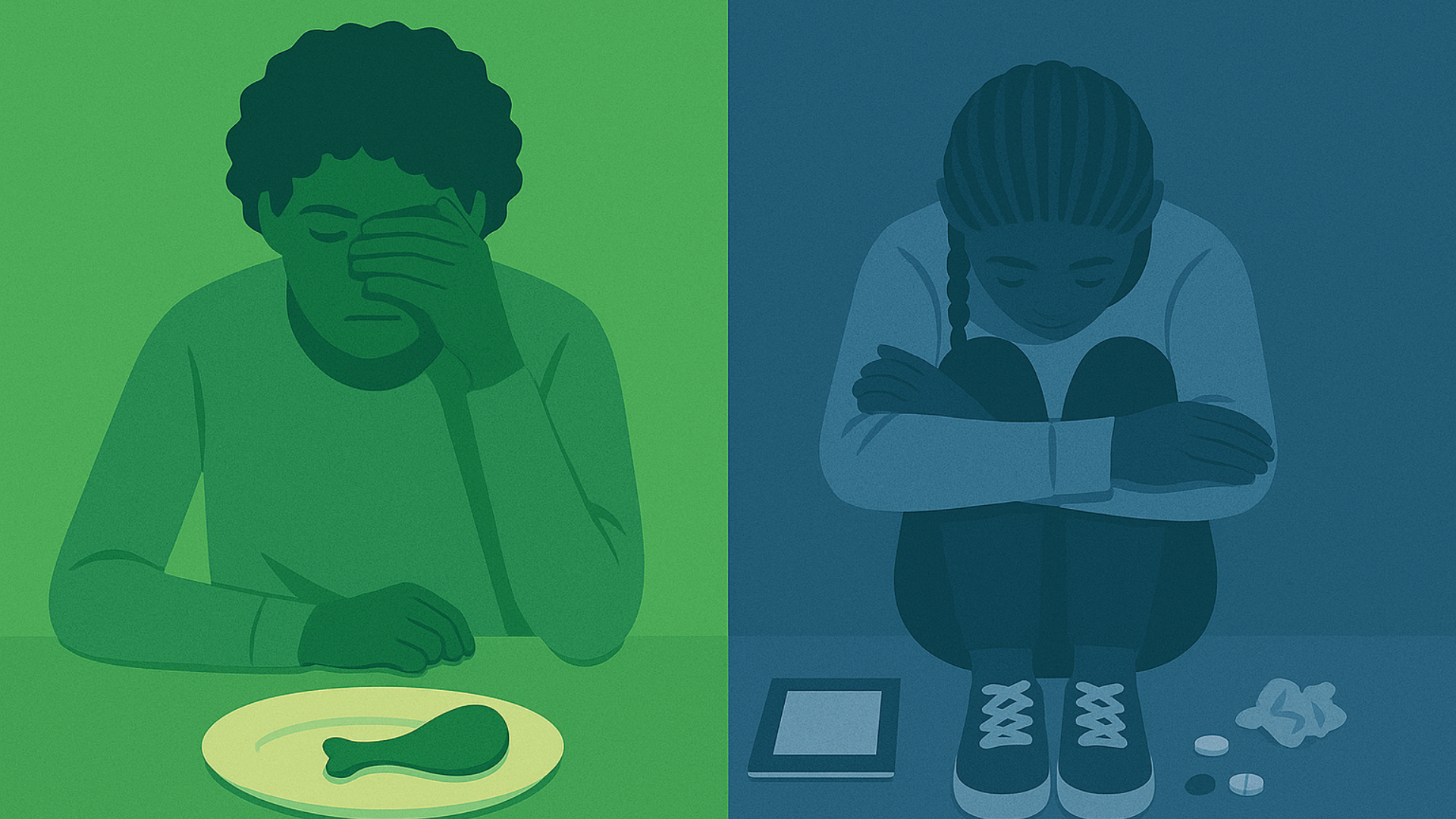The Mental Health Impacts of Sexual Assault

By Thrive Reno Therapist Justus Mora, M.A., MFT-Intern
Sexual assault can have far-reaching impacts on victims’ mental and behavioral health. In response to the trauma of sexual assault, survivors may struggle with conflicting emotions, unhealthy behaviors, and mental and behavioral health conditions. With support from professionals, family members, and friends, however, individuals who have experienced sexual assault can learn to process their experience, discover healthy ways to cope, and find ways to flourish again.
WHAT IS SEXUAL ASSAULT?
Sexual assault refers to sexual contact or behavior that occurs without the explicit consent of the victim.
Some examples include:
- Attempted rape
- Fondling or unwanted sexual touch
- Forcing a victim to perform sexual acts
- Penetration of a victim’s body
SIGNS OF SEXUAL ASSAULT
Signs that someone has been affected by sexual assault may include:
- Signs of depression : Including persistent sadness, lack of energy, withdrawing from normal activities, and feeling down.
- Self-harming behaviors : As a means for dealing with feelings of pain, distress, or overwhelm.
- Low self-esteem : Characterized by feelings of worthlessness, comparing oneself to others, and difficulty maintaining boundaries.
- Anxiety about situations that didn’t cause worry in the past: Which may present as avoidance of specific situations or places.
- Sexually transmitted infections or signs of physical abuse: Brought on by sexual assault.
- An increase in alcohol or drug use : As a way to cope with the emotional trauma brought on by the sexual assault.
SEXUAL ASSAULT’S IMPACT ON MENTAL AND BEHAVIORAL HEALTH
Sexual assault increases the risk of developing mental or behavioral health disorders as well as other long-term mental health effects.
Among many others, there is a correlation between sexual assault and the following mental and behavioral health disorders:
- Anxiety disorders
- Depression disorders
- Substance use disorders (SUDs)
- Suicidality
- Obsessive-compulsive disorders (OCD)
- Trauma-related disorders
Long-term mental, emotional, and behavioral health effects of sexual assault can include:
- Anger: Directed at the perpetrator.
- Fear: About subsequent assaults.
- Shame or self-blame: Wrongfully blaming oneself for behaving in a way that encouraged the perpetrator.
- Mood swings: Due to unresolved emotions surrounding the assault.
- Promiscuity: As a kind of maladaptive coping mechanism.
- Loneliness: As a result of social isolation following the assault.
- Difficulty concentrating: Due to being distracted by the distress and trauma of the assault.
- Learned helplessness: A condition that causes individuals to feel utterly helpless to escape aversive situations, due to feeling incapable of avoiding the sexual advances of the offender.
- Loss of trust in others and oneself: About 80% of sexual assault perpetrators are individuals who the victims know, according to the Rape, Abuse & Incest National Network (RAINN) . This personal relationship with the offender can impact the victims’ ability to trust others and themselves.
The responses of one’s social circle to a sexual assault can also impact the victim’s mental health, including:
- Family members and friends may desire to avenge their loved one.
- Family members and friends may feel inclined to fix their loved one.
- Family members and friends may downplay their loved one’s experience as “not that bad”.
- Victims may also become the target of bullying by their peers.
These unhealthy responses by victims’ family, friends, and peers are inappropriate and can cause them further mental and emotional distress. While the victim’s loved ones may be distraught in the wake of the assault, to avoid responding inappropriately, they should do their best to remain calm, offer their support to the victim, and seek support for themselves as well.
COMMON MISCONCEPTIONS ABOUT SEXUAL ASSAULT
One misconception about sexual assault is that there is no reason for a victim not to report sexual violence.
Unfortunately, victims may grapple with many reasons to keep the assaults secret, including:
- Concern that they won’t be believed
- Fear of being blamed for the assault
- Feelings of intense shame or embarrassment
- Fear of retaliation from their attacker
- A desire to protect their attacker
- Pressure from others not to inform law enforcement
- Distrust in law enforcement
Another misconception is that victims can invite sexual assault or harassment by their behavior, the way they dress, or the places they go. This unjust transfer of responsibility to the victims removes rightful responsibility from perpetrators and can induce anxiety, depression, and trauma responses in victims.
Another misconception is that individuals who commit sexual assaults are mentally ill, abnormal, and perverted. While these circumstances may be true in some cases, sexual offenders come from all educational, cultural, and occupational backgrounds, and most offenders seem normal or ordinary. Their perceived social identity, however, takes away none of the immense harm that they cause victims.
HEALING FROM SEXUAL ASSAULT
Therapy can be vital for recovery from sexual assault and can guide victims to healing by helping them:
- Feel and express all of their emotions without experiencing shame
- Foster self-compassion
- Understand their triggers and discover effective ways to cope
- Get to know their body again
- Feel comfortable pursuing pleasure
At Thrive, we welcome and treat sexual assault victims with utmost respect, compassion, and kindness. Our therapists can help you heal the emotional pain as well as any other mental and behavioral health effects caused by a sexual assault. Reach out to learn more about our therapeutic services .
Additionally, there are national resources available for individuals affected by sexual assault, including:
- The National Sexual Assault Hotline: A 24/7 crisis line that can be reached at 1 (800) 656-4673.
- The Rape, Abuse & Incest National Network (RAINN) : The nation’s largest anti-sexual violence organization.
About the Author
Thrive Reno Therapist Justus Mora, M.A., MFT-Intern
Justus Mora earned a bachelor’s degree in psychology from California State University, Bakersfield in 2014 before obtaining a master’s degree in marriage and family therapy counseling from the University of Nevada, Reno in 2018. Since then, he’s helped outpatient clients with mental health struggles for over three years. Justus also has clinical experience in a substance abuse recovery setting, where he worked with clients to manage opiate addiction and co-occurring mental health concerns while also assisting with medication management. Throughout his career, he has served teenagers, adults, couples, and families.
As a therapist at Thrive Wellness Reno, Justus specializes in treating clients with mood disorders, relationship issues, and sexual health concerns, as well as those simply seeking more life satisfaction and fulfillment. His clinical approach is grounded in cognitive-behavioral therapy (CBT) and existential therapy, as well as elements from several other modalities depending on each client’s unique needs.
Justus is passionate about working with the LGBTQIA+ community and those struggling with sexual health and intimacy issues. He believes everyone needs a sense of safety, comfort, and community to thrive and strives to establish collaborative, non-judgmental, and understanding relationships with clients so that they may connect with their feelings and experience clarity and purpose in their lives.
The post The Mental Health Impacts of Sexual Assault first appeared on Thrive Wellness.








